FORT LEWIS, Wash. -- As they climbed higher, Ryan Job closely followed chief guide Curtis Fawley. Art Rausch, another guide, brought up the rear, and a rope kept the three within feet of each other.
The 14,410-foot summit of Mount Rainier lay ahead.
"Every step they told me to take, I took," Job recalled. "Trust was the key ... factor to my success. I totally trusted the team."
A formidable challenge for an able-bodied climber, the Rainier climb represented the experience of a lifetime for Job, an ex-Navy SEAL blinded when shot by a sniper Aug. 2, 2006, in Iraq. At 8:30 a.m. on July 9, 2008, he stood atop the mountain.
"The summit was amazing, even for a blind man," Job said. "I could sense that nothing was above my head because of the wide-open sound and wind."
Giving combat-injured veterans outdoor adventures has been the mission of "Camp Patriot," a nonprofit organization founded in Montana, since 2006. While most of the outings revolve around hunting, fishing, hiking and camping, the annual Mount Rainier Climb has become the organization's signature event. The third annual climb will take place July 5-10.
"It's a great adventure for these guys," said Micah Clark, an ex-Navy corpsman who founded Camp Patriot. "It's neat to see the excitement in them. It's become an annual event. It keeps growing each year."
Camp Patriot took two veterans up the first year, three in 2008. Rausch, a Lakewood firefighter and a lieutenant colonel in the Army Reserve assigned to Vancouver Barracks, served as a guide both years and will be back for the 2009 ascent.
"It is so intensive," said Rausch of climbing with the injured veterans. "It has to be guides that are used to working with people and that have the patience and the know-how."
On the first trip in 2007, Rausch and Fawley guided Scott Smiley, who is blind, and Ed Salau, an above-the-knee amputee. Smiley made it all the way to the summit.
"He didn't want to be something that we were dragging up there, a football for us to slam at the top and say, 'Hey, we got the blind guy up,'" Rausch said. "I looked at every step he made for eight hours going up."
Rausch pointed out that the summit marks the halfway point of the effort.
"Every trip is a round trip," Rausch said. "Getting down is the real important part. Getting up is optional, but getting down is mandatory."
Rausch, who has guided at Mount Rainier since 1989, places safety above all else on the mountain.
"If you live in the area, you know that people die up there quite often, some years more than others," Rausch said. "And even if you're on top of it, stuff happens. There's no climb that's ... worth risking a life on."
Job, now a spokesman for Camp Patriot, said Fawley and Rausch did a great job.
"Never did I feel unsafe on the mountain because of the expert guiding of Curtis and Art," Job said. "The people of Camp Patriot are the most passionate people devoted to a mission - the same work ethic and moral conviction that I saw from my own SEAL platoon teammates."
Rausch said he suspected that he might be getting more out of these climbs than the veterans he guides.
"They are like national treasures," said Rausch of the veterans. "Being able to work with them was just a really special opportunity to give back a little bit."
Job and the other veterans have been on the receiving end.
"My trip on Mount Rainier with Camp Patriot caused me to realize that I can still live a lifestyle of my choosing," said Job, "that is, a life as an outdoorsman just as I had before losing my sight.
"I learned from Camp Patriot that life is about people and that living is something that we as people must choose to do. Life is a choice and self-pity has no place in mine."
Bob Reinert is a reporter with Fort Lewis' Northwest Guardian.
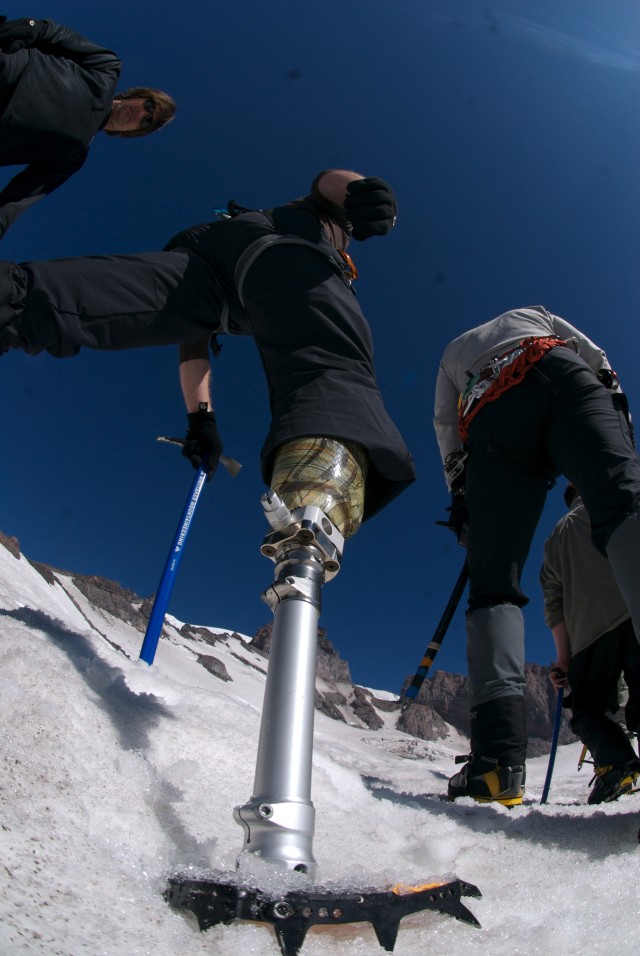
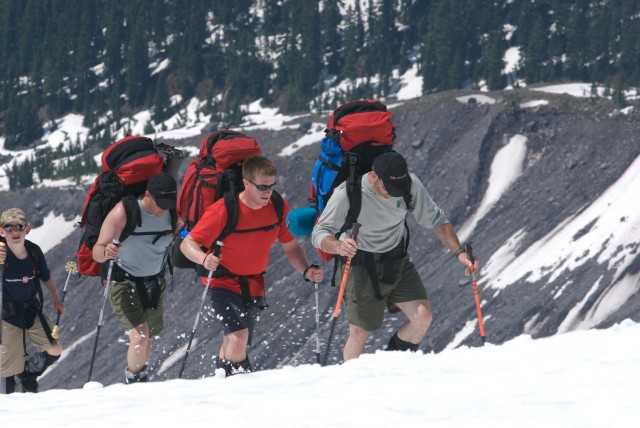
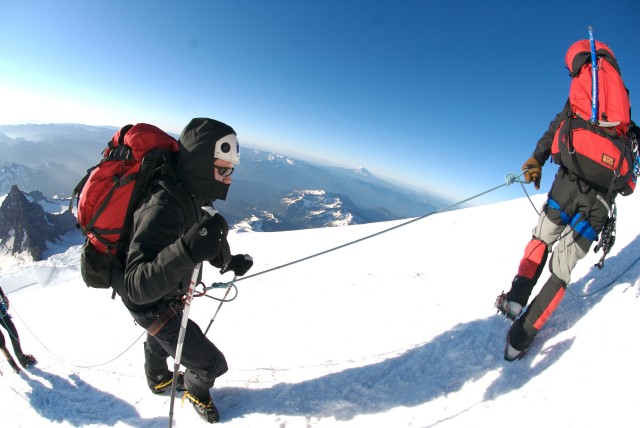
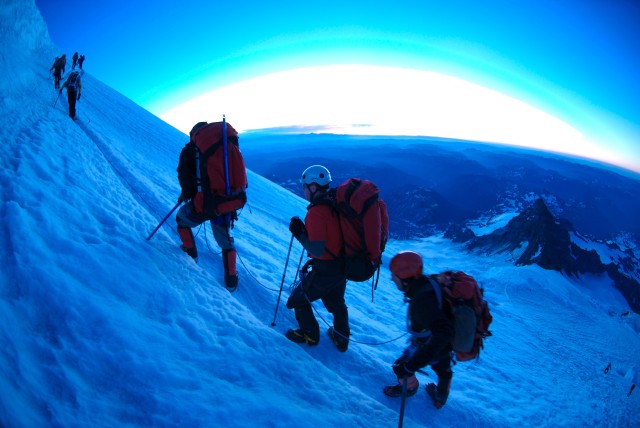
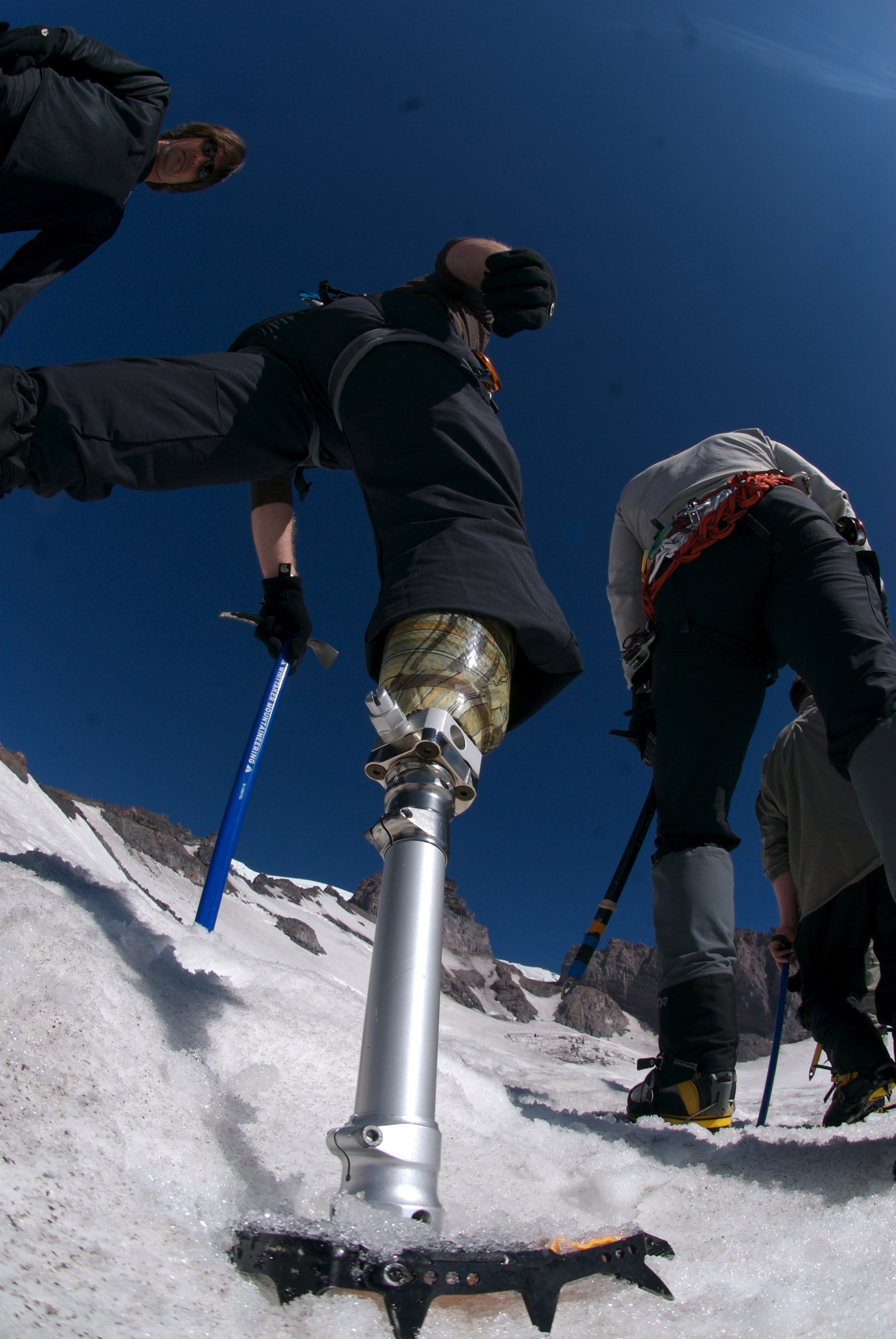


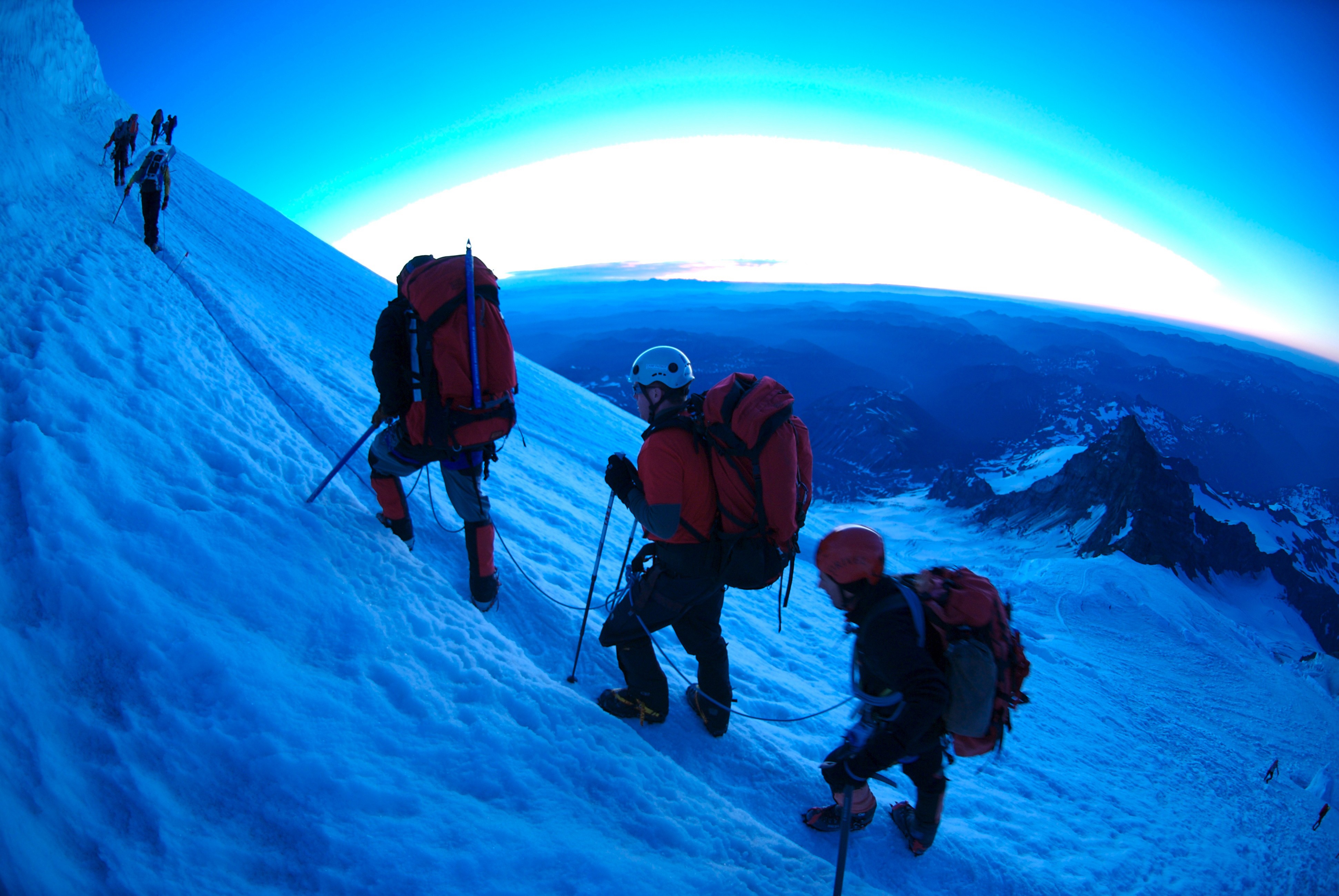
Social Sharing